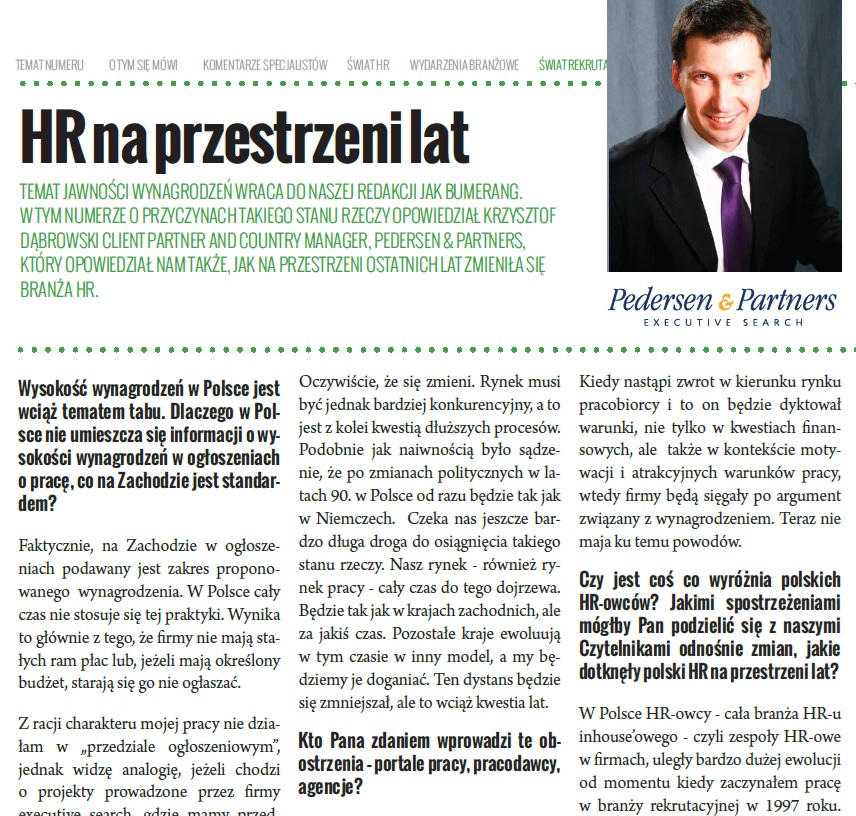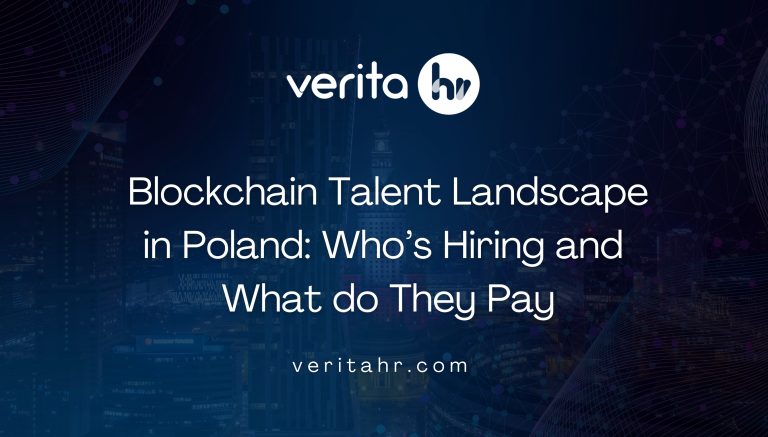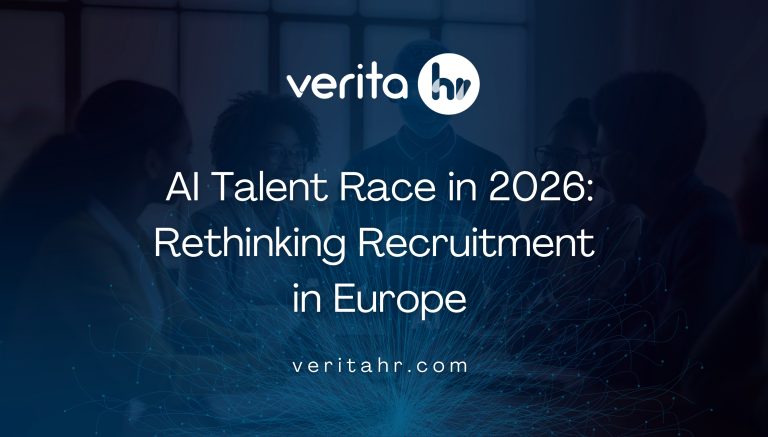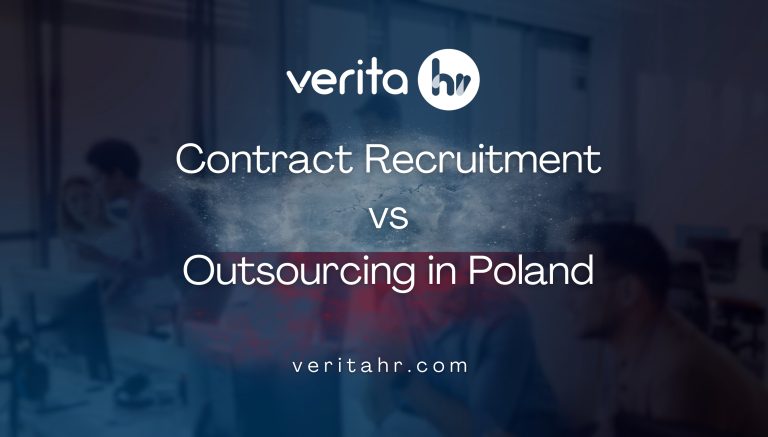Poland has had a low unemployment rate for many years now. Apart from a small interruption during Covid, unemployment has not increased above 6 percent since 2018. This has led to skills shortages in certain sectors. It has also increased the demand for traditional recruitment and headhunting services.
Employers in Poland’s largest cities are feeling the pressure to find talents the most. According to Statista, in 2024, Poznan and Katowice both had a 1 percent unemployment rate. Warsaw is not far behind with 1.4 percent. Krakow had a 2 percent unemployment rate.
Fortunately, recruitment companies are based in all of Poland’s largest cities. Some of them even offer headhunting services.
What is Traditional Recruitment?
The Polish job market went into hyperdrive upon the country’s accession to the EU in 2004. Within a few years global recruitment giants like Michael Page, Hays, Reed, and others opened their doors in Warsaw and other Polish cities. But before they did open their doors, something curious had started happening. The role of researcher started to become increasingly popular.
With traditional recruitment we are talking about job advertisements and the resulting screening. In 2005 many people were still buying printed adverts in Poland’s leading newspapers like Gazeta Wyborcza. There was a large ‘Praca’ section in the centre of the newspaper once a week. It was one of the main ways to find candidates in the mid-2000s.
With the onset of pracuj.pl, jobpilot (now Monster polska), goldenline, and others, the need to use printed job adverts started to dwindle. But, whilst this change was going on, the demand for researchers was still growing.
What is Headhunting?
The role of researcher is often correlated with working in an executive search business. In Poland things were different. In the early 2000s, when recruiting businesses started to appear in Warsaw, there was a lot of demand for their services. The interesting thing was that most of the recruiting companies, the likes of Nicholson International and others, offered executive search services only.
Of course, executive search firms also paid for flashy half page ads in industry magazines. They didn’t just use Excel lists of people they had heard of speaking at or attending events. However, that was the reality. There were researchers in their numbers across Poland. More than there were recruitment consultants.
In headhunting a researcher, often an entry-level position in recruitment, is someone who gathers information about candidates. Most of the candidates’ details would come from company websites, phone calls to reception desks of offices looking to identify job holders in the company, and other types of outreaches. Less of the candidates would come from advertising. Back then, just as today, passive candidates would need to be approached proactively.
This was what the best researchers did. They called receptions and pretended to be from an industry magazine or an event and get past the receptionist. Once they got the candidate on the phone they would pitch them the job. If they said yes, that was when the recruitment consultant would step in. Usually in a face-to-face meeting. Often without the researcher present. The researchers would be back in the office looking for more candidates instead.
This is how headhunting would look like. And nearly every recruitment company in Poland offered this service until the late 2000s.
The Rise of LinkedIn in Poland
LinkedIn wasn’t always the powerhouse we know today. In the early 2000s the portal had its difficulties. People didn’t really know if the portal dedicated to jobs and personal branding would not be just another internet fad like MySpace or Friends Reunited. By the early 2010s things had changed and LinkedIn was clearly here to stay.

In March 2014 the editorial team at Magazyn Rekruter, a Verita HR publication, interviewed Krzysztof Dabrowski from Pedersen & Partners, a leading executive search firm in Poland. At the time Krzysztof shared how researchers at his firm were asked to not be reliant on LinkedIn. Just like during the times when he was a researcher and there was no LinkedIn yet.
He highlighted how interaction with candidates is more important in an executive search business. LinkedIn should not be a priority, there should be a self-generated candidate database in place already with notes from various phone calls and face-to-face meetings.
Today recruiters in Poland use ALL tools available. Some of them even engage talent from abroad in their efforts to help clients find talents. LinkedIn has also evolved its offering adding job adverts. Researchers have faded into the history books of recruitment. The role of recruiter is the one that people are more familiar with today.
The Modern Recruitment Reality
Firms today must use LinkedIn. Even executive search firms. LinkedIn is arguably the single biggest thing to affect the Polish recruitment sector over the last decade. In most countries recruiters use candidate databases that are available through leading portals like Stepstone or Monster. In Poland this database option has always been less popular. Candidates don’t really use it, so nor do recruiters.
That has left the market wide open for LinkedIn. It has forced Polish headhunters and recruiters to be online more. It has made them build their personal brand.
There is still a need for headhunting. Something that companies like Verita HR also offer. It isn’t quite as it used to be in the past. Today the internet has greatly impacted every industry sector. It is much easier to research a person or find people for a job through online searches today than ever before. Sometimes there is information online that isn’t on LinkedIn too, especially when searching for passive candidates where executive search firms specialize.
Are you having skills shortages in your business? Are you missing some talented individuals in your team? Headhunting, traditional recruitment, and now modern recruitment are all areas where Verita HR’s consultants excel.
Ready to work with an experienced recruitment partner? Contact Verita HR today!
#Headhunting #TraditionalRecruitment #Recruitment #Talent #LinkedIn #Candidates #Advertising #Researcher #Poland #VeritaHR
Author: Andy Samu
See Also:
Who is the Best Fintech Recruitment Business in Poland? – Verita HR
Should your Recruiter be a Social Media Influencer? – Verita HR






